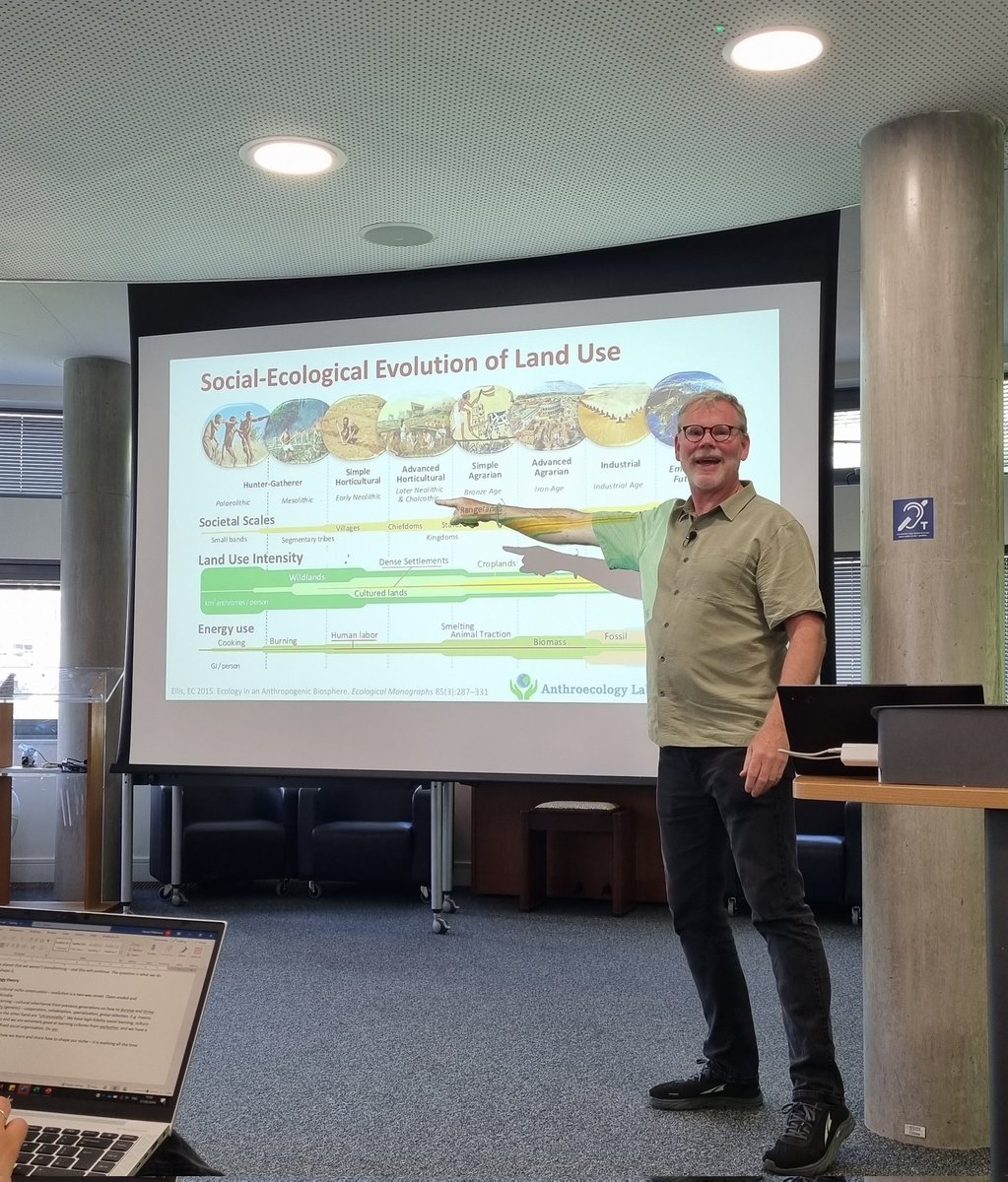
Inês Martins
@InesISMartins
Followers
544
Following
1K
Statuses
445
Royal Society University Research Fellow at @AnthropoceneBio| Former MSCA fellow @Mariecurie_alum | #Macroecology #BiodiversityChange #CommunityEcology
York, England
Joined February 2014
📢Really happy to share our new paper “Widespread shifts in body size within populations and assemblages” published today in @ScienceMagazine @NewsfromScience #ScienceResearch a🧵👇
5
69
180
RT @AnthropoceneBio: Congratulations @InesISMartins on being awarded a @royalsociety University Research Fellowship 🎉 Inês' research on th…
0
4
0
It's been a while but Hey! I’m officially starting my @royalsociety University Research Fellowship at @UniOfYork today! Looking forward to spending the next years further exploring the complexities of #biodiversity change taking place across time and space. @AnthropoceneBio
4
3
58
RT @drkatiedavis: Summer internship on primates and extinctions in the Cenozoic available here at York (open to UG and PGT students through…
0
19
0
We're excited to welcome @erleellis to #LCAB on Tues 7 May Erle whose work on Anthromes is world-renowned will join us to talk about Re-Culturing Nature to Sustain Biodiversity in the Anthropocene Open to @UniOfYork staff - register for your place here:
0
1
10
RT @AnthropoceneBio: The purpose of long-term scenarios is not to predict what will happen. It is to understand alternatives & avoid these…
0
5
0
This is wonderful! Always nice to see your research reaching your home country! 🇵🇹
This is excellent journalism: outstanding piece in @Publico about our @ScienceMagazine paper on global biodiversity change. Thank you Clara Barata!
0
0
6
Find more about it here: or in the @UniOfYork press release: @AnthropoceneBio @BiologyatYork @LeverhulmeTrust
Climate change could become the dominant driver of biodiversity decline by mid-century 🐠. In the 20th century, however, land-use change was the most important driver. These are the results of a large modelling study by iDiv, @UniHalle & others in @ScienceMagazine. 1/X
0
1
4
RT @Leclere_David: Humbled to have participated to this massive modeling study, led by @hmlfpereira & @InesISMartins - not very positive n…
0
7
0
RT @idiv: Climate change could become the dominant driver of biodiversity decline by mid-century 🐠. In the 20th century, however, land-use…
0
24
0
New level unlocked...When you sprain your ankle and your colleague asks you how it is looking... and your replay is "it's looking like the viridis color palette" #R
1
0
12
🚨New paper! Is homogenization really that more common than differentiation? - not really, our latest work shows that one pattern can be as common as the other. @ScienceAdvances @bioTIMEdb @univofstandrews @AnthropoceneBio Another great collaboration led by this amazing team👇
The lack of evidence for declining local diversity through time must be because everything is homogenizing, leading to larger-scale losses. Right?! Nope, says our analysis of 500+ meta-communities through time published @ScienceAdvances @idiv
0
6
12
RT @AnthropoceneBio: 📢Exciting opportunity! We are looking for an outstanding researcher from the Arts and Humanities to join us @UniOfYo…
0
13
0
@PunksInScience @Nature @Jon_Chase03 Congrats Roel! Another importnt piece. Looking forward to read it.
0
0
1









